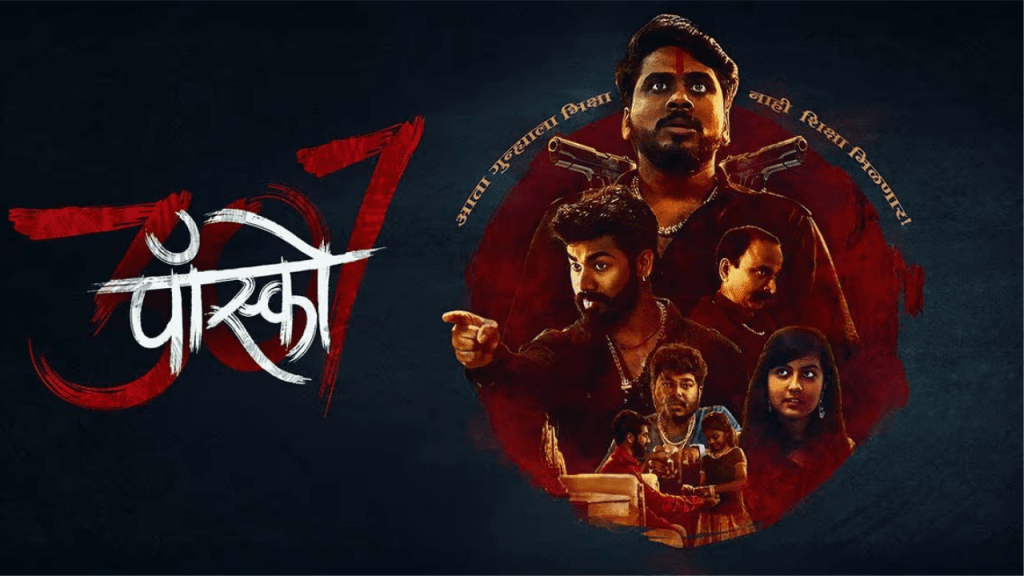Language: Marathi
Age Rating: U/A
Genre: Crime Drama, Social Justice
Director Swaroop Vaishali Balasaheb Sawant brings forward a socially charged vigilante story with POSCO 307, a Marathi-language crime drama that deals with the emotional fallout of rural injustice. In this POSCO 307 movie review, we delve into how the film tries to mix activism and emotion, but falters in execution.
Plot: A Village Where Justice Is Too Slow
At the heart of POSCO 307 is a brutal crime that shakes a small village: the assault on Krushna’s younger sister. When the justice system fails to respond with urgency, Krushna (driven by rage) and his friend Bali decide to take the law into their own hands. What begins as personal vengeance soon triggers a domino effect of unrest in the community.
The film attempts to ask hard-hitting questions: When the law fails, does vigilantism become justified? But as this POSCO 307 movie review explains, good questions alone don’t make a great movie.
Check Out: Majhi Prarthana Trailer Review: A Stirring New Chapter in Marathi Cinema
Performances: More Misses Than Hits
Unfortunately, the cast fails to elevate the weak script. Director-actor Swaroop Sawant plays Bali but brings very little emotional depth or charisma to the role. Amit Taware and Shashi Thosar put in average performances, neither compelling nor memorable.
Divya Ghadge, Kartiki Santosh Sorte, and Siddheshwar Zadbuke appear in supporting roles but don’t leave much of an impact. In a film built on emotion and trauma, the lack of intensity in acting hurts the storytelling.
Direction and Writing: A Promising Idea Gone Astray
The film’s theme—youth-led vigilantism in the face of systemic failure—is powerful. However, as this POSCO 307 movie review points out, the writing lacks freshness, and the direction feels amateurish. The screenplay, penned by a trio including the director himself, tries to juggle too much—melodrama, action, emotion—but none of it truly clicks.
The pacing is inconsistent. Scenes that should have delivered emotional punches come off as flat due to poor buildup and abrupt transitions. The film feels like it’s in a constant hurry yet never really gets anywhere impactful.
Must Read: Zapuk Zupuk Trailer Review: Kedar Shinde’s Next Marathi Entertainer Promises Laughs & Drama
Cinematography, Music, and Editing: All Underwhelming
From a technical standpoint, POSCO 307 has very little to celebrate.
Sopan Purandare’s cinematography fails to give the film a unique visual identity—shots are predictable and lack aesthetic richness.
Prathamesh Kanade’s music is uninspiring, with forgettable background scores and songs that don’t integrate well into the narrative.
The editing feels choppy, with noticeable transitions and a lack of rhythm.
Cultural Context and Message
The film is set in rural Maharashtra and draws on the frustrations of youth in underprivileged regions. While it captures the anger and helplessness of people who are often failed by institutions, the execution doesn’t do justice to the message. The dialogues feel forced and lack the raw power needed to drive a story of injustice home.
Strengths and Shortcomings
✅ What Works:
- A socially relevant premise focused on rural justice.
- Potential for emotional impact through the vigilante theme.
❌ Where It Falls Short:
- Weak screenplay with scattered focus.
- Underwhelming performances from the lead cast.
- Poor editing and technical quality.
- Emotional disconnect and predictable storytelling.
Final Verdict: ⭐️⭐️ (2/5 Stars)
To conclude this POSCO 307 movie review, the film aims high but lands low. It has a powerful subject at its core, but is bogged down by weak writing, poor execution, and uninspired performances. What could’ve been a hard-hitting commentary on rural justice ends up feeling more like a missed opportunity.
Should You Watch It?
Only if you’re keen on supporting socially themed Marathi films or want to witness how regional cinema is addressing issues of justice and youth rebellion. For most, though, POSCO 307 may come across as an emotionally unfulfilling watch.
Now playing in theatres.


